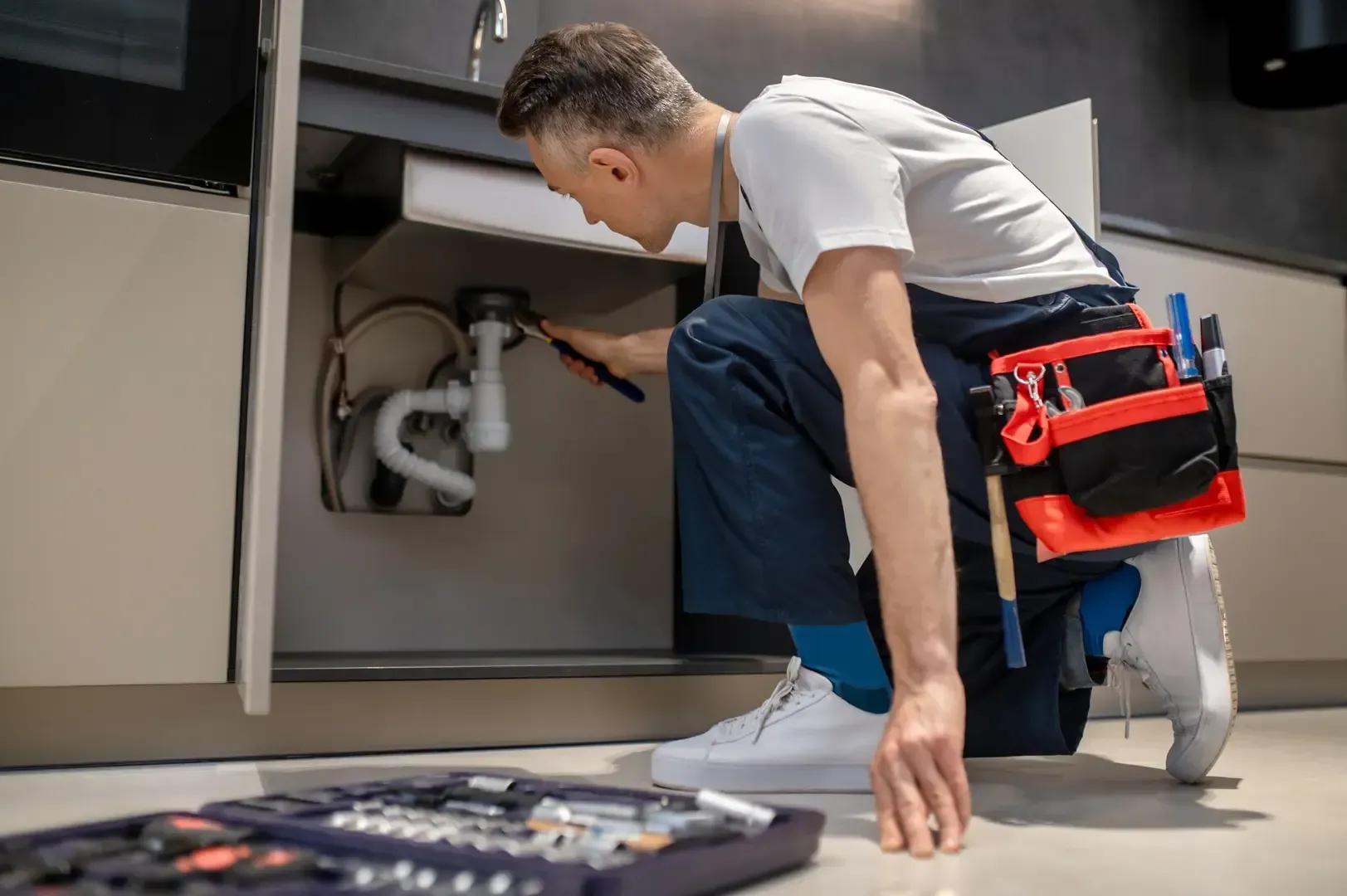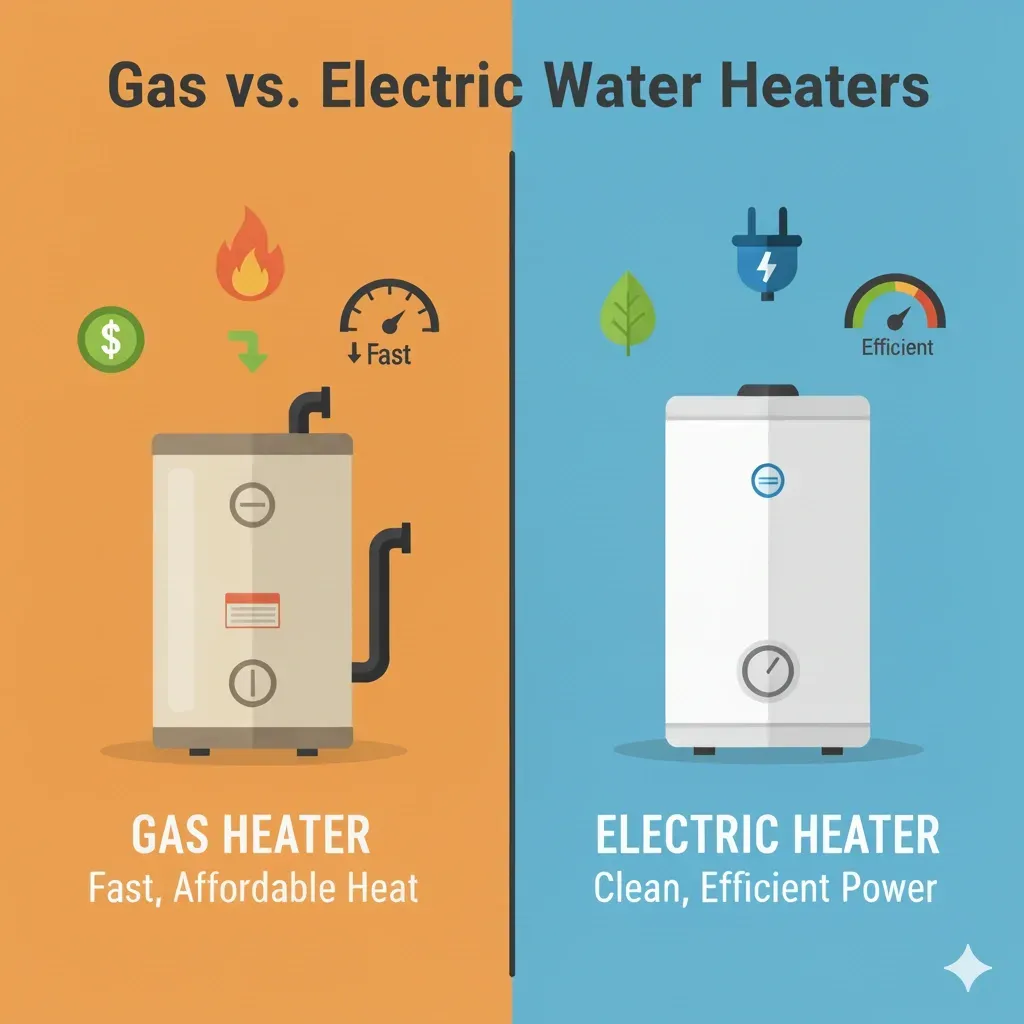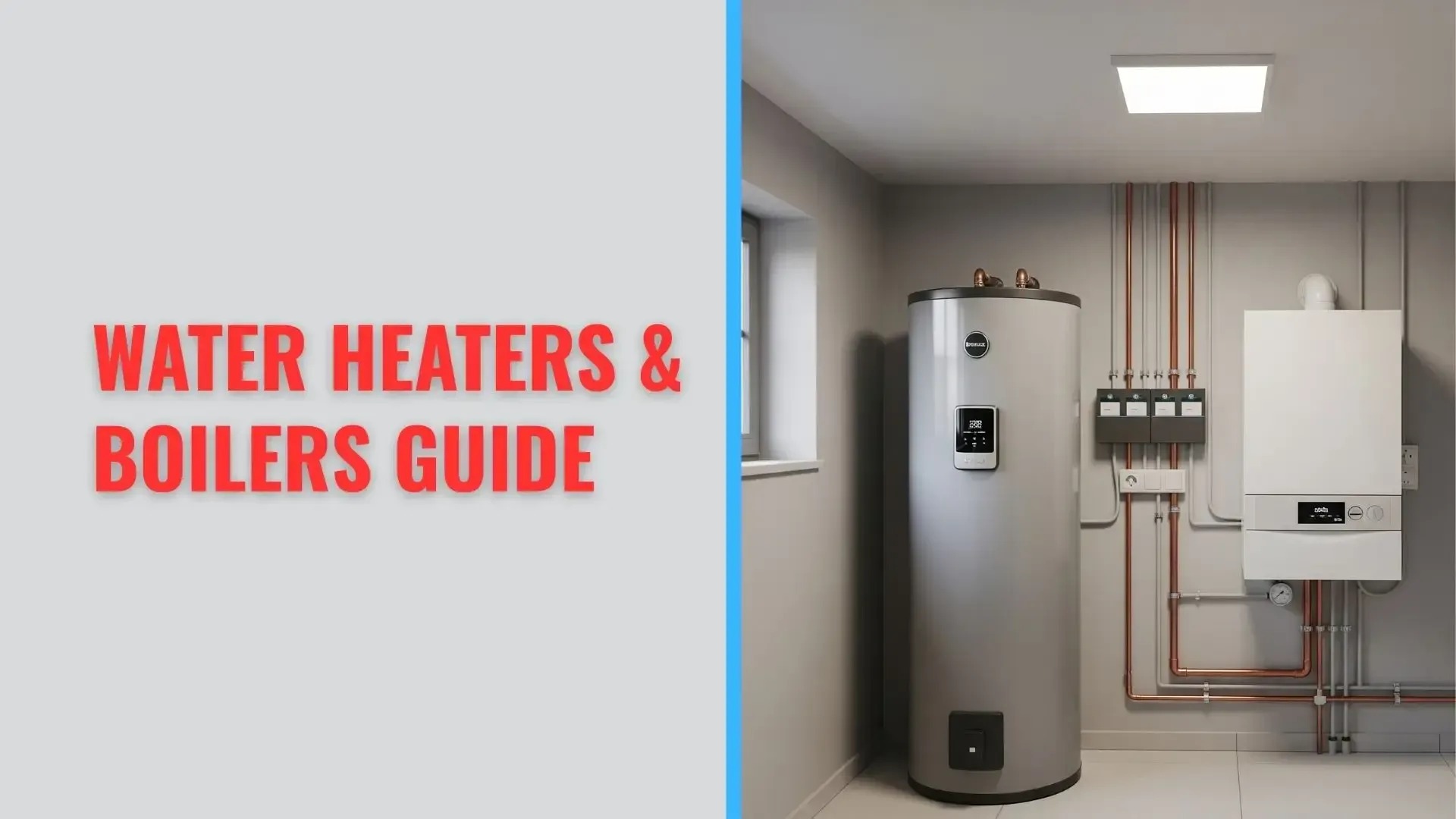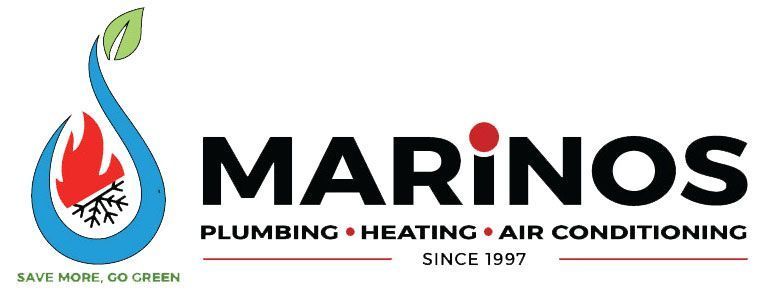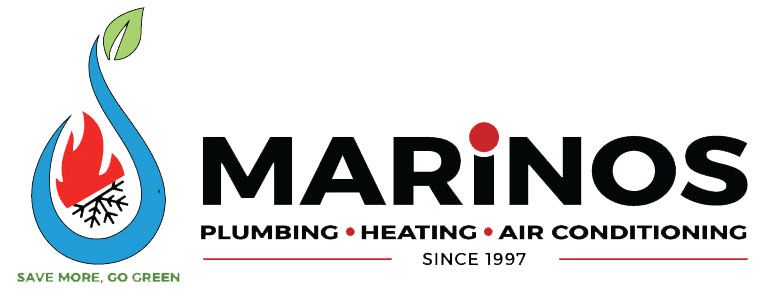Choosing the Best Plumbing Company in Fort Saskatchewan
Choosing a plumbing company in Fort Saskatchewan isn't just about finding the fastest fix for your leaky faucet. You want to be sure they treat your home or business with care, earning your trust, and providing long-term value. The local options in Fort Saskatchewan can easily be a confusing consideration.
Don't panic. We will guide you with a thorough, easy-to-follow decision-making process. Whether you are looking forward to a bathroom remodeling soon or are currently facing a serious plumbing concern, this post will help you put your best foot forward.
Understanding the Importance of a Good Plumbing Company
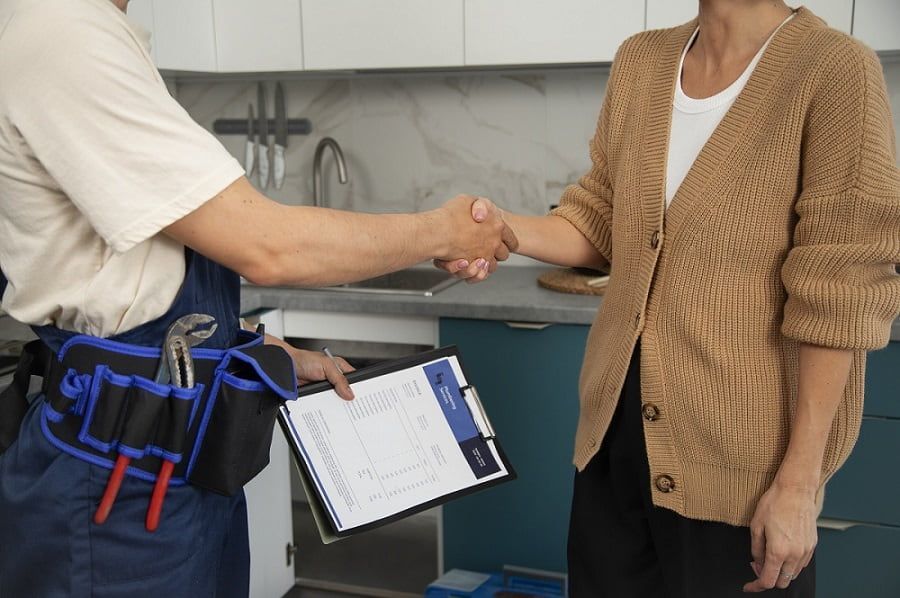
Why Plumbing Matters in Your Home or Business
To be frank, plumbing is one of those topics that rarely crosses your mind until there is an issue. However, just like everything, plumbing plays a significant role in your comfort and health.
Plumbing systems in households and businesses provide clean water, proper sanitation, and efficient drainage. In a household or business setting, weak plumbing systems make accessing water impossible, and ongoing leaks exacerbate the problem. Nightmare!
A plumbing company is not just there to fix a plumbing issue; rather, their job is to help ease a household's hurdles with plumbing issues, provide prevention guidance for future plumbing issues, help extend the lifespan of pipes, and, most importantly, provide relief.
Having poor plumbing systems is equally dangerous as having poor plumbing maintenance. Fort Saskatchewan plumbing services offer a growing range of reputable companies that prevent water damage, mold, and expensive water bills, as well as costly repairs.
A reputable plumbing company earns its reputation by avoiding poor and irreparable plumbing work done years ago. They will never acquire new customers or reliable clients if they fail to fulfill their plumbing obligations within the timeframe they are bound to. This is the reliable reputation you earn, and it takes a lot of time.
Hence, due to its competitiveness, the company will always be accurate and reliable with costs and timeframes, and will never damage its clients' property. Trust in a plumbing company is hard to earn when you are a repeat offender of plumbing work, and when you need to fix loose faucets for years to come until a new plumbing company takes its place.
Common Plumbing Issues in Fort Saskatchewan
The seasonal changes in Fort Saskatchewan can create specific plumbing issues for homes and businesses. During the winter months, homes and businesses are at risk of having their pipes freeze, while heavy rains in summer and spring can cause drainage issues.
Experiencing rain and snowfall in the spring and summer can also contribute to heavy drainage issues. These weather changes also accompany the need for expert hands to manage the plumbing challenges.
Some of the most common plumbing problems in this region include:
- Burst pipes during freezing temperatures
- Basement flooding during heavy rainfall
- Leaking taps and running toilets are causing excessive water bills
- Clogged drains from hair, grease, and sediment
- Hard water mineral buildup is affecting water heaters and fixtures
Locally offered plumbing services have the experience and understanding necessary to provide effective and accurate solutions. No matter the issue, seasoned plumbing experts have multiple solutions ready to use and deliver. Always choose locally to get the best services and faster results.
Start with Local Recommendations and Online Reviews
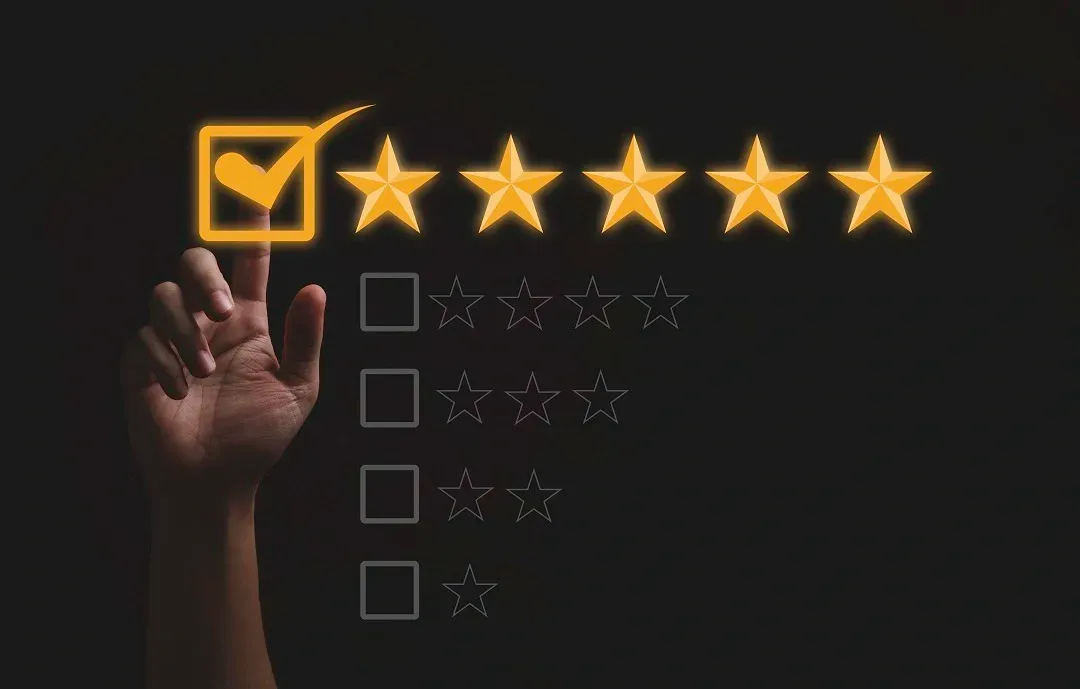
Asking Neighbors and Friends for Trusted Suggestions
The power of reputation and word of mouth is unmatchable when selecting a service provider. Why? Because people tend to vocalize both sides of their experience. If a neighbor or friend has enjoyed a smooth, economical, and professional plumbing service, then they will likely celebrate it, and the business deserves to be shortlisted.
Start by asking around:
- "Who did you call when your water heater went out last winter?"
- "Was the plumber punctual and polite?"
- "Would you hire them again?"
You'll be able to identify names very quickly. Those service providers have earned their reputation through the high quality of service they provide. The best part is that local people will give you the whole picture, including the good, the bad, and the ugly. Those honest views can help you avoid the unreliable.
Utilizing Google, Yelp, and Facebook Reviews
Reviews serve the purpose of tracking down and managing customer feedback. Google, Yelp, and Facebook, to name just a few, provide a broad overview and feedback from real customers. Look for businesses that have a minimum rating of 4 stars and a considerable number of reviews.
It is normal for a business to have one or two negative reviews among hundreds of positive reviews. However, if there is a trend of negative reviews, the company is most probably a failure.
What to look for in reviews:
- Consistency in customer satisfaction
- Comments on professionalism, punctuality, and transparency
- Mention of fair pricing and emergency response times
- Photos of completed work
- Company responses to complaints (do they care enough to reply?)
Also, check how recently the reviews were posted. A company that was great five years ago might not meet the same standards today. Fresh reviews are always more relevant.
Verify Licensing, Insurance, and Certifications

Why Insurance and Licensing are Important.
Here's a non-negotiable rule: never hire a plumber who isn't licensed and insured. Period.
A license proves the plumber has met local regulations and is qualified to do the work. In Fort Saskatchewan and across Alberta, licensed plumbers must complete a combination of education, apprenticeships, and exams to obtain certification.
Insurance protects your property and you. Accidents can occur randomly, even with the best of care. You do not want to be left paying for damages for bursting pipes or during a repair. Liability insurance handles damages and injuries, while workers' compensation covers the plumber in the event of an injury during work.
Before agreeing to any work, ask for confirmation of both insurance types. A reputable company will be happy to show you.
Industry Certifications to Look Out For
Some plumbers go above and beyond to ensure they obtain additional certifications. Beyond the basic license, these certifications indicate ongoing education, a continuous commitment to quality, and some may even be a specialization in specific fields. Some of these include:
- Red Seal Certification – A national standard of excellence for tradespeople in Canada.
- Certified Green Plumber – For companies that prioritize environmentally friendly plumbing solutions.
- Backflow Prevention Certification – Essential for Protecting Your Water Supply.
- Membership in the Mechanical Contractors Association of Alberta (MCAA) – Adds credibility.
Although not all of these certifications are mandatory, they are helpful and set one company apart from others. This demonstrates that the company is striving to be proactive and up-to-date with industry best practices.
Assessing the Company's Experience and Expertise
Years in Business and Specializations
Longevity in the plumbing business usually means two things: they're doing something right, and people keep coming back. A company that's been around for 10, 15, or even 20 years has likely handled every plumbing issue under the sun—and learned from it.
That said, time alone doesn't sell it. Different jobs require different skills. One company might excel at fixing leaky toilets in houses, but struggle to tackle the plumbing under a restaurant. Another might be known for installing high-efficiency water heaters and leaving drain cleaning to the subcontractors.
When choosing your plumbing company in Fort Saskatchewan, ask:
- "How long have you been in business?"
- "What types of plumbing work do you specialize in?"
- "Can you handle emergencies, big renovations, or unique fixtures?"
A good company knows its strengths—and will be honest about its limits.
Case Studies and Past Work Portfolio
Would you like to see the plumbing company's potential work?
Request their portfolio or sample projects. Most professional companies have before-and-after snapshots or documented case studies of their work, which can be very helpful for design and renovation projects involving plumbing.
Look for:
- Before-and-after images of plumbing repairs or installations
- Testimonials from satisfied customers
- Descriptions of challenges and how they solved them
- Evidence of neat workmanship and quality materials
A well-documented portfolio doesn't just show off their skills—it shows they're proud of their work. That's always a good sign.
Evaluate Range of Services Offered

Emergency Services Availability
Plumbing problems don't follow a 9-to-5 schedule. Burst pipes, clogged toilets, or leaking water heaters can strike at any time—and when they do, you'll want help fast. That's why emergency services matter so much.
Find out:
- Do they offer 24/7 emergency plumbing?
- What's their typical response time after-hours?
- Are there extra charges for weekend or holiday visits?
A company that answers your call at 3 AM during a winter freeze isn't just valuable—they're a lifesaver.
Residential vs. Commercial Plumbing Services
When determining the exemplary plumbing service for your residential home and business, first analyze your target clientele.
If you're a homeowner, look for:
- Bathroom and kitchen fixture repairs
- Water heater maintenance and installation
Leak detection and pipe repair
- Sewer line cleaning and inspection
If you're a business owner or property manager, you'll also want:
- Commercial-grade pipe replacement
- Large water heater systems
- Grease trap installation
- Routine maintenance contracts
Always choose a company that aligns with the scope of your project.
Check for Transparent Pricing and Free Estimates
Understanding the Importance of Upfront Quotes
Let's talk finances—because home repair work should never feel like a game of fee hide-and-seek. A sign of a good plumbing company is that it offers free estimates and transparent pricing.
A seasoned professional should conduct a thorough quote after evaluating the work, explaining the repairs needed, and detailing the work to be done.
So, how do you know if a plumber is being honest about costs?
They'll break it down for you. Costs for labor. Materials needed. Any extra charges and warranties offered. A company that is vague or hesitant to talk about pricing is a major, glaring red flag. Everyone deserves a clear breakdown of what they are being charged for and why.
You should ask the following :
- Do they charge by the hour or offer a single flat fee?
- Are emergency services priced differently?
- Are estimates free, or do they charge a call-out fee?
A top-notch plumbing company in Fort Saskatchewan will respond promptly and provide fair service. Zero tricks. No suspicious tiny print. Just straightforward service.
Avoiding Hidden Fees and Unclear Terms
Hidden charges can turn a $200 repair into a $500 nightmare. Always read the fine print before agreeing to anything. Ask questions like:
- Is cleanup included in the price?
- Are parts and labor covered under warranty?
- Is there a minimum charge regardless of the problem's size?
Some plumbers offer incredibly low initial quotes to lure customers in, only to add additional fees once the job begins. That's why it's essential to get everything in writing. A written estimate with detailed line items protects both you and the company.
Bonus tip: Always compare quotes from at least three different companies. You'll get a good idea of the market rate and avoid overpaying.
Check Availability and Responsiveness

How Fast Can They Show Up?
Speed matters—especially when you're ankle-deep in water from a burst pipe. A plumbing company's responsiveness reveals a great deal about its commitment to customer service. If they can't arrive within a few hours or ignore your calls for a day or two, it's time to start searching again.
Reliable plumbers will:
- Answer the phone or call back within the hour
- Offer same-day or next-day appointments when needed
- Communicate delays or schedule changes
When reaching out to companies in Fort Saskatchewan, test their availability right away. If you call during business hours and only get voicemail—or worse, no response for days—it's a clear sign their service might not be dependable when you need it.
Customer Service and Communication Style
Let's be real: no one enjoys talking to a rude or uninterested repair person. A true professional treats you with kindness, listens attentively to your questions, and explains things clearly and respectfully.
You should feel like your plumbing problem matters to them as much as it matters to you. A plumbing company that communicates well sets a positive tone for the entire job, making the whole experience easier and less stressful.
Good communication goes beyond just politeness. You want a plumber who:
- Clearly explains what's wrong and how they'll fix it
- Offers options where possible, not just one solution
- Keeps you updated throughout the process
- Follows up to ensure the issue is fully resolved
These little things can turn a one-time fix into the plumber you trust for life.
Inquire About Warranties and Guarantees
What Should Be Covered?
Plumbing isn't cheap—and neither are repeat visits to fix a botched job. That's why warranties and satisfaction guarantees are so crucial. They protect you from poor workmanship and defective parts.
Before hiring, ask:
- Do you guarantee your work?
- How long is the warranty period for labor and materials?
- What happens if the problem returns?
A reliable Fort Saskatchewan plumbing company typically offers a 30 to 90-day warranty for minor repairs and extended warranties for major work like water heater installations or pipe replacements.
Steer clear of any company that shies away from warranty questions or talks about guarantees in vague terms. If they're sure they did it right, they'll prove it by putting it in writing.
What Does a Satisfaction Guarantee Mean?
What does the phrase "100% Satisfaction Guaranteed" really mean? Ideally, it allows us peace of mind that the company will go to great lengths to ensure that the job is performed to the customer's satisfaction. This may include the following:
- Free follow-up visits to address lingering issues
- Refunds for unsatisfactory service
Free replacement of defective parts or fixtures
Be sure to get these terms in writing. An oral promise is nice, but a written agreement holds more weight if you ever need to enforce it.
Compare Multiple Companies Before Deciding
Why You Should Shop Around
The first plumber that answers your call may be the most convenient for you to book an appointment with. You should not settle with the first plumber you book an appointment with.
Searching through different plumbing companies enhances our chances of obtaining the best plumbing services in terms of price, quality, availability, and customer service.
Take the time to:
- Read online reviews
- Check portfolios and case studies
- Interview at least 2-3 plumbers before committing
- Compare estimates side-by-side
You wouldn't hire an employee without an interview. Extend the same courtesy to your plumber.
Creating a Shortlist of Top Candidates
Once you've gathered some info, narrow your list down to two or three of the most promising candidates. Use the following criteria:
- Experience and expertise
- Transparency in pricing
- Strong online reputation
- Proper licensing and insurance
- Fast and friendly customer service
- Availability when you need them
From there, go with your gut. If one company checks all the boxes and feels right, that's probably the one.
Plumbing Company Comparison in Fort Saskatchewan
After you've gathered initial research, it's time to see how local options compare side-by-side. Below is a breakdown of some of the most reputable plumbing companies in Fort Saskatchewan, based on their services, availability, and key differentiators.
Heartland Plumbing & Heating Ltd.
- Services: General mechanical contractor offering plumbing, heating, gas fitting, and water heater/furnace services.
- Availability: Available during weekdays and weekends with good emergency support.
- Strengths: Transparent pricing and fast response are commonly mentioned, though the experience may vary based on technician availability.
- Best For: Basic to mid-level plumbing tasks needing quick response—though their large scope may lack the personalized feel of smaller firms.
Marino's Plumbing & Heating
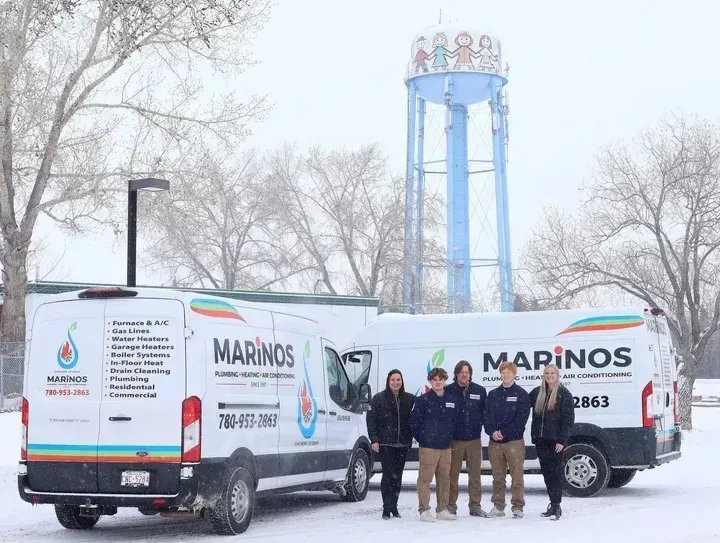
- Services: Full-spectrum plumbing and HVAC services including hot water systems, gas line installs, drain clearing, HVAC repair, in-floor heating, and more.
- Availability: Weekday service with added Saturday morning hours; online quotes and financing options provide added convenience for larger projects.
- Strengths: Combines technical expertise with a polished, professional approach. Strong communication, quality workmanship, and financing flexibility set them apart.
- Best For: Homeowners who want a reliable, professional team that delivers high-quality results without surprises. Ideal for both routine maintenance and larger renovation projects.
Canuck Plumbing & Heating
- Services: Heating installations, furnace replacements, water heaters, and home renovations.
- Availability: Weekdays only; emergency support is limited and scheduling can be rigid.
- Strengths: Established presence in the region with a long track record.
- Best For: Planned upgrades or projects with flexible timelines.
Robertson's Plumbing & Gasfitting
- Services: General plumbing repairs, gas line work, boilers, and furnaces.
- Availability: Regular hours only, with some scheduling inconsistencies noted.
- Strengths: Longtime family-run business with a dependable history.
- Best For: Smaller routine jobs when time isn’t critical.
Thompson Mechanical Services
- Services: HVAC and plumbing services including repairs, maintenance, installations, and mechanical contracting.
- Availability: 24/7 emergency services are available.
- Strengths: Affordable pricing and combination HVAC + plumbing packages.
- Best For: Clients who need both plumbing and HVAC solutions from one provider.
Ask the Right Questions During the Consultation
What to Ask Before You Hire
The consultation stage is your golden opportunity to dig deep. You're not just calling someone to repair a pipe—you're choosing someone to rely on for years, potentially. The questions you ask here can reveal a lot about a plumbing company's professionalism and competence.
You should ask:
- How long have you been in business in Fort Saskatchewan?
- Are your plumbers licensed and insured?
- Do you offer emergency services, and what's the response time?
- Can you provide references or reviews from past customers?
- What is your warranty policy on parts and labor?
- Will I receive a detailed written estimate before work begins?
- How do you handle unforeseen complications or changes in costs?
Listen closely to the answers and the way they are delivered. Do they speak clearly and honestly, or do they throw out vague, practiced lines that seem too perfect?
Plumbing is built on trust. A good plumber will gladly take you through every step, break down technical jargon into everyday language, and lay out the entire process from the start, so you know exactly what to expect.
Red Flags to Watch For
In some cases, it is not what a company states that is the issue, but instead what information they omit. Here are some problematic signs that should spring to mind:
- No proof of licensing or insurance
- Evasive answers about pricing
- High-pressure sales tactics or demanding upfront payment in full
- Poor communication or delayed responses
- No references or bad online reviews
- No written warranty or guarantee
Trust your instincts. If something feels off, it probably is.
Consider Their Use of Technology and Modern Tools
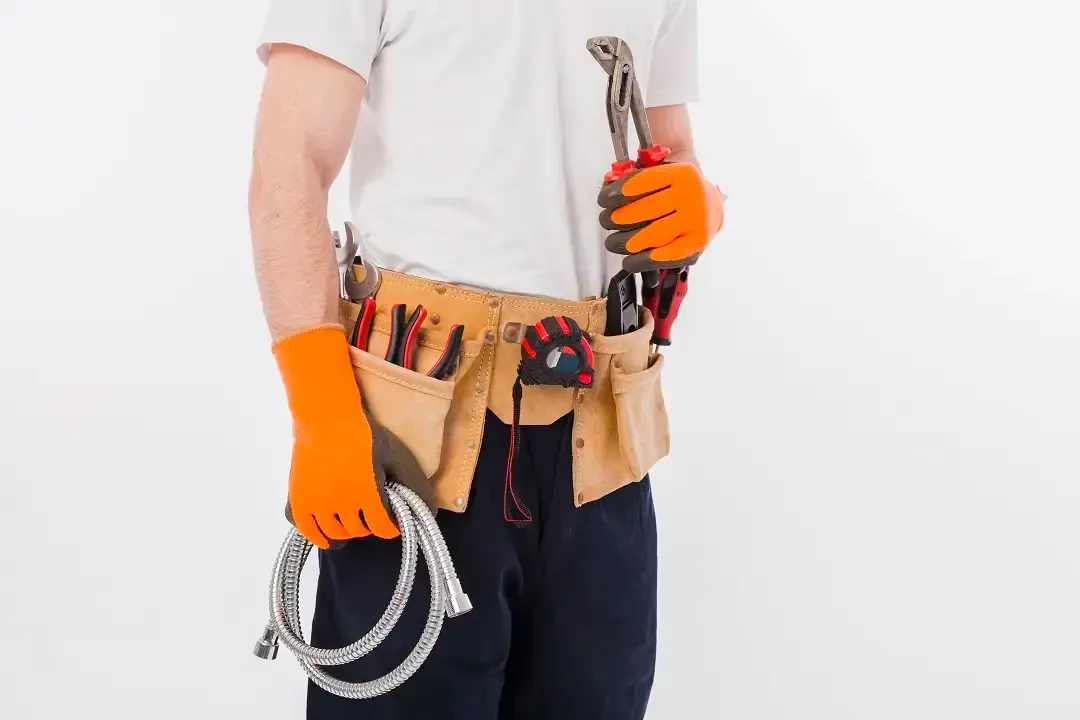
Why Modern Equipment Matters
Today's plumbing isn't about luck. The best pros roll out smart cameras, leak detectors, and motion-sensing tools. These gadgets find trouble faster and fix it with minimal mess, so your living room stays dry and your peace stays intact.
Some of the modern tools a top-tier plumber might use include:
- Video camera pipe inspections – To detect clogs, leaks, and blockages deep in your pipes without tearing up walls or floors
- Hydro-jetting systems – High-pressure water systems that clear even the toughest clogs
- Electronic leak detection equipment – To identify invisible leaks behind walls or under slabs
- Trenchless sewer repair tools – Minimizes digging and reduces yard damage
A plumbing company using outdated tools and methods would take longer to do the job and charge more for the harm done to your pipes.
Digital Scheduling and Customer Support
Another sign of a modern, customer-focused company? They embrace digital convenience.
This includes:
- Online appointment booking
- Text/email reminders
- Digital invoices and receipts
- Live customer support chat or 24/7 phone access
- Real-time tracking of service vehicles
These features don't just make your life easier—they show that the company values professionalism and efficiency.
Evaluate Environmental and Sustainability Practices
Eco-Friendly Plumbing Solutions
Sustainability isn't just a buzzword—it's an essential factor in modern home maintenance. The best plumbing companies in Fort Saskatchewan are adopting green practices to help you reduce water waste and lower your utility bills.
Ask if the company offers:
- Low-flow toilets and showerhead installations
- Tankless water heaters for energy efficiency
- Leak detection systems to prevent waste
- Water recycling systems for large properties
- Environmentally safe pipe-cleaning methods
Choosing a plumber who offers eco-friendly solutions doesn't just help the planet—it helps your wallet, too.
Disposal and Recycling of Old Materials
An often-overlooked detail is what happens to the old pipes, fixtures, and materials once the job is done. A responsible plumbing company will dispose of these items safely—and many will recycle where possible.
Before hiring, ask:
- How do you dispose of old pipes or water heaters?
- Do you recycle metal parts or packaging materials?
- Are your products and installations certified for environmental safety?
A commitment to proper disposal and recycling shows that the company is serious about doing the job right—from start to finish.
Read and Understand the Service Agreement
Breaking Down the Fine Print
The service agreement is more than just paperwork—it's your protection plan. Always read it thoroughly before signing, no matter how friendly or reputable the company seems.
Look for precise details about:
- Scope of work
- Pricing and payment terms
- Start and completion dates
- Warranties and guarantees
- Policies for changes, cancellations, or delays
If the agreement is unclear or contains jargon, request clarification. A skilled plumber will guide you through it without any hesitation.
Holding the Company Accountable
Once everything is in writing, the company is accountable to deliver on those terms. That means:
- They can't suddenly raise prices without approval
- They must complete the agreed work on time
- They're responsible for any errors, damages, or incomplete work
- You have a basis for any legal claims, should it come to that
Don't skip this step. A well-written contract ensures peace of mind—and protects your investment.
Make Your Final Decision with Confidence
Trusting Your Research and Instincts
You've done the homework. You've read reviews, compared quotes, asked questions, and evaluated credentials. Now it's time to choose the best plumbing company in Fort Saskatchewan for your needs.
Don't overthink it. If a company checks all the boxes and gives you a great first impression, go for it. If something felt off, even if the price was right—trust your gut and keep looking.
Trust your research and go with trusted plumbing professionals in Fort Saskatchewan who’ve built their reputation on service and integrity.
Remember: This isn't just about one repair. It's about choosing a partner for your home's long-term health. Choose the company that made you feel informed, respected, and sure of their ability to get the job done.
Building a Long-Term Relationship with Your Plumber
Once you find an excellent plumbing company, keep their number close by. Build a relationship. Good plumbers often prioritize loyal clients, offering faster service and even discounted maintenance plans.
How to maintain the relationship:
- Leave a review or testimonial
- Refer them to friends and family
- Use them consistently for all your plumbing needs
- Enroll in any available maintenance or inspection programs
Like a trusted mechanic or family doctor, a reliable plumber is someone you'll want to call on again and again.
Key Takeways
Choosing the best plumbing company in Fort Saskatchewan doesn't have to be a matter of guesswork. With a bit of research, the right questions, and a gut-check or two, you can find a team that's trustworthy, skilled, and available when you need them most.
From checking licenses and reviews to comparing quotes and services, every step brings you closer to peace of mind—and plumbing that works the way it should.
Don't wait for a crisis to find your go-to plumber. Start your search today, and invest in the long-term care of your home or business. Because when the water's rising, you'll be glad you did.
Frequently Asked Questions
1. How do I know if a plumbing company is licensed in Fort Saskatchewan?
Check the company's website or ask directly for proof of licensing. You can also verify through Alberta's trade registry for licensed professionals.
2. Is it better to choose a plumbing company with emergency service?
Absolutely. Plumbing emergencies don't follow business hours, so having a 24/7 provider gives you peace of mind during unexpected issues.
3. What's a fair price for a basic plumbing repair?
The cost varies, but expect to pay between $150 and $300 for minor issues, such as unclogging a drain or fixing a leak. Always ask for a written estimate.
4. Should I get multiple estimates before hiring a plumber?
Yes. Comparing 2–3 estimates helps you understand the market rate and avoid being overcharged or under-served.
5. Can a plumber help with installing water-saving fixtures?
Yes! Many plumbers offer eco-friendly services, such as installing low-flow fixtures, which can help reduce water usage and lower utility bills.
You might also like
